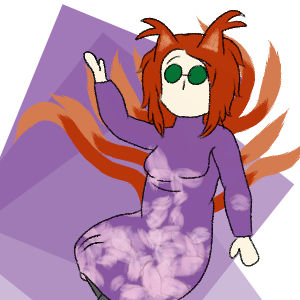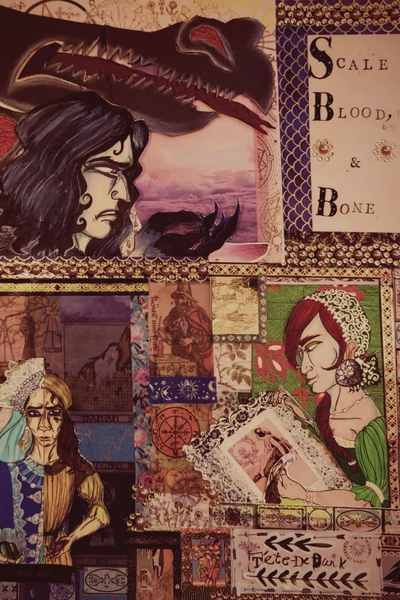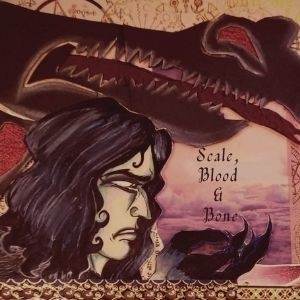In the city of Govnirad, fire engulfed their houses. Their markets, teeming with wealth, went in blazes. Their proud halls, where the mighty met and decreed, were consumed and left nothing more than charred, smoking skeletons of beams and blackened stone.
The night air, usually occupied by music, laughter, and ruckus, were now replaced by wailing, weeping, and screams of disbelief.
Some perished. Those foolish to rush back in and grab their possessions met their end. The survivors consisted of those who took onto the streets and open places and wept for their loss.
The fire came from the breath of an old god. An old god they knew not of, but of a sparse lot they disdained as weaklings. Now they watched in disbelief as this people’s god, greater than any god they too had deadened in their own forgetfulness and dusty texts, breathed fire and inflamed all before them.
A foreigner’s god ravaged their city- as they ravaged these people a time ago.
The god issued forth his own declaration, declaring his wake, and pronouncing the mortal woman, bedraggled and swollen with child, be heeded as unto him.
Now the god, with force and fire, gathered the oppressors, their advisers, their ministers, and the greats in a circle in their city’s largest market. Surrounded by the glare of the city’s fire, they watched all their greatness be eaten by the flames. They knelt in the straw-strewn cobbles and mud, their ill-gotten finery tarnished and ragged.
In the center stood the old god, arched tall and proudly, towering over their tallest spire, seeming all the more horrible. Lowering his neck, they screamed, fearing he should clamp his teeth and gnash them like a great beast upon a field mouse. But instead, the god let the strange mortal woman descend. With bruised and bare feet, she stepped onto the fine tiled square where the nobles’ walkway laid.
They stared, stupefied by the sight of the woman. Her hair, unbound, hung in frayed, frazzled locks, while her raiment consisted of a coarse cloth dress, torn and worn to faded tatters smirched with earth and the dried blood of her own scrapes and cuts. But upon her shoulders, the god’s shawl outshone her rags, and radiance glowed an authority upon her tired yet determined face.
Rukhel remained silent, equally dumbfounded she stood before her oppressors. They had seemed like gods to her in their power and tyranny before. But now they knelt before her, in terrified deference. A scrap of humiliation remained in her. Her knees trembled. What would she say?
She looked up at her god. The god casted a serious but knowing nod at her. Rukhel understood not at first, but nodded. Her hands grasped at the shawl, drawing it tighter around her shoulders. She felt the old god’s wisdom and strength seep into her like the sun soaking warmth on her back when she worked the hard days in winter.
Rukhel spoke.
“Listen, rulers of the North and West Beyond!
Two centuries, your ancestors invaded our Valley. Promising peace, you deceived us, and we, in our own blind fear and desire of gain, accepted your treaties. But you stripped us down to nothing! You enslaved us, not with chain forged of irons, but of your tributes!” Rukhel clenched her fists fiercely, as though hatefully yanking on chains she imagined.
She continued.
“First, you ousted from our cities. You reduced us to villages and towns as you killed our people. You drove us under the lash of death and worse that we sowed and reaped our valley barren. When you balked at the paltry grain we struggled to grow, you then took our sons and husbands for your armies, and like beasts seeking the choicest of prey in a herd, you came into our villages, and robbed us of our daughters and wives your eyes deemed beautiful and pleasing to you to serve in your palaces for your own pleasure.”
A stab of sorrow pierced Rukhel for a moment as she remembered her mother and sister taken away by soldiers, for they had been eyed as desirous beauties. Rukhel was a child then. She never saw or heard from them again, and bitterness hardened her and her resolved like a hammer fortifying steel in the forge.
Rukhel waited for their answer. They had none.
“But see you now, we have risen again. Our god answered us, while you have forgotten and allowed your gods to sleep too long. Will they awaken now? They follow the Law of All That is, and they cannot forgive your wrongs. They cannot help you.”
“Please, command us what we may do! To make recompense unto you! Spare us!” came the representative answer of the oppressors from one panicking in front of Rukhel.
Rukhel stood silent. In that moment, she envisioned the same retribution dealt unto them. Take all their wealth. Take their sons and daughters and make them weep. Oust them to the deserts and swamps and let them eke out paltry grain and grow gaunt. Let them wither as she and her people did. Her fists clenched at her side. How her words wanted to spew forth and watch her oppressors fall as her people did!
She closed her eyes. Tears stung the corners of her eyes, and Rukhel blinked open. She gazed above the pitiful circle of the once-great men before her and saw a mother with two children. The mother strapped her baby onto her side in a sash, while she attempted to wash a burn on the arm of a sobbing little girl, her other child. Catching sight of the old god and Rukhel beyond, the mother’s eyes widened in terror and she clutched her children all the tighter, shaking her head in plea.
Rukhel realized the victory costed bitterly, and vengeance, truly sweet like ripened fruit, also gave bitterness like the gall of a spoiled half.
Thus came Rukhel’s answer:
“By all rights of the Law, we should mete unto you equally what you have dealt unto us all the years. We should take your cities. We should take grains, ravage your land for our own gluttony. We should take your sons and daughters for our armies and pleasure. But we will not. We ask only that you deliver unto us, your riches. Give us your timbers and stone, so that we may build our villages into cities yet again. Give us your riches of gold, jewel and silks so that we may trade and grow in wealth, and that we might save a remnant and clothe ourselves as you do now. From your grain and livestock, give us half- so that our children might grow their own, and we might live without want. Deliver unto us all this within a fortnight, begin this night, and you all shall be spared. Once you have paid your reparations, do not step forth even one foot onto our Valley. Leave us and never again come near us. When we build our cities, we will build walls. Do not tear them down. Never again raise against us and cast your shackles again on us. If you do, our god will summon himself, and other gods, older gods of my people and yours will turn upon you, and I and my people shall not order mercy, for we cannot then.”
Rukhel finished her decree. She gazed upon the gaping mouths and glazed eyes of the once-great.
“What is your answer?” she asked.













Comments (12)
See all